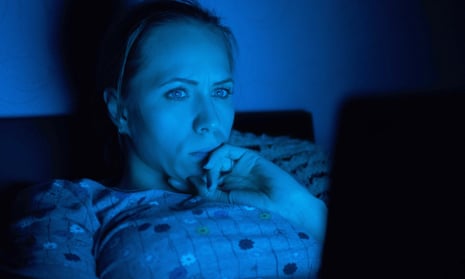In the silent hours of a cold winter evening, I’m one of thousands of students around the country struggling with the same internal question: should I watch another episode?
Realising I have a problem, I’ve been trying to stop watching Netflix on the weekends. It’s easy to distract myself on Friday and Saturday by going out with friends or reading. But come Sunday, I can’t resist any longer. I start a marathon that ends up lasting five hours.
Binge-watching is not frowned-upon in quite the same way as tobacco and alcohol binges. Media outlets even condone the culture: BuzzFeed posts articles like “18 binge-worthy shows that have very single episode on Netflix.” The Guardian runs Stream On, an entire series devoted to online shows. So how am I expected to break such a deeply-ingrained habit?
It is 12:06am.
After calculating the amount of sleep needed to make an early morning lecture, I find myself turning back to The Crown, my newest Netflix obsession.
“It’s addictive,” declares Gina Marie Enriquez, 21, an American student at Paris Diderot University.
She binged on four whole seasons of Downton Abbey in just five days, blaming it all on that infamous countdown clock: a fatal Netflix feature that automatically starts the next episode after 15 seconds – so once you’ve rearranged the pillows or checked the time, chances are the next instalment is already playing. Once it’s started, only the strongest willed can stop it. “How can I resist?” she asks helplessly.

It is now 1am.
I’ve reached a gripping cliff-hanger in The Crown – the inconsiderate kind that turns a blind eye to that fact that I’ve got a 9am lecture. As I contemplate whether to continue or log off, the countdown clock hits five seconds. Four. Three. Two. I succumb to the pressure and sacrifice another hour of precious sleep.
To escape from the pressures of university life, the modern student can all to often be found Netflix and chilling – in the sad, literal sense – curled up alone around a laptop in their room. But is binge-watching actually an addiction?
Not according to Dr Sally Marlow, public engagement fellow in the addictions department of King’s College London. “Everyone is familiar with these self-indulgent behaviours. We have friends that eat too much, or have an extra pint at the pub, but these are not necessarily addictions,” she says.
“It is easy to say: ‘I am addicted to chocolate’ or: ‘I am addicted to Netflix,’ but that most certainly does not mean it is true.” I can torment myself with thoughts of disappointing addiction research and the problems of modern-day culture. But the fact is, it’s 1:54am and I have to be up in less than six hours.
That dangerous countdown timer is about to start ticking again. Just one episode left to complete The Crown. Overheated and overworked, my laptop’s fan is wheezing like a heavy smoker – yet its only vice was enabling my binge and it deserves a long break.
I know that if I carry on, I may not wake up in time. I close the lid of my laptop and turn over, praying for sleep.
Keep up with the latest on Guardian Students: follow us on Twitter at @GdnStudents – and become a member to receive exclusive benefits and our weekly newsletter.

Comments (…)
Sign in or create your Guardian account to join the discussion